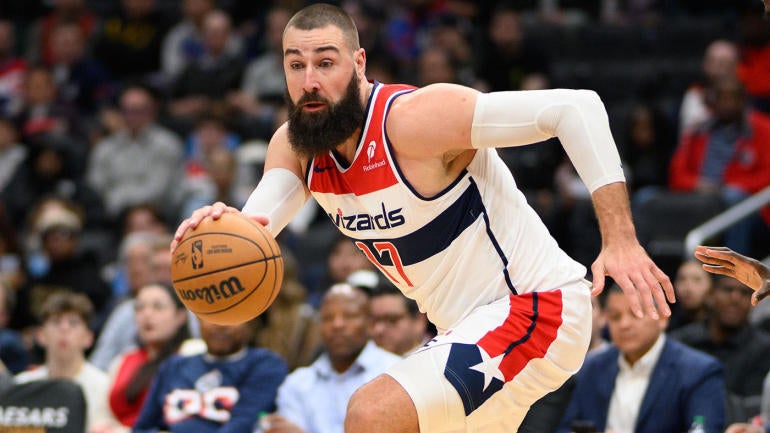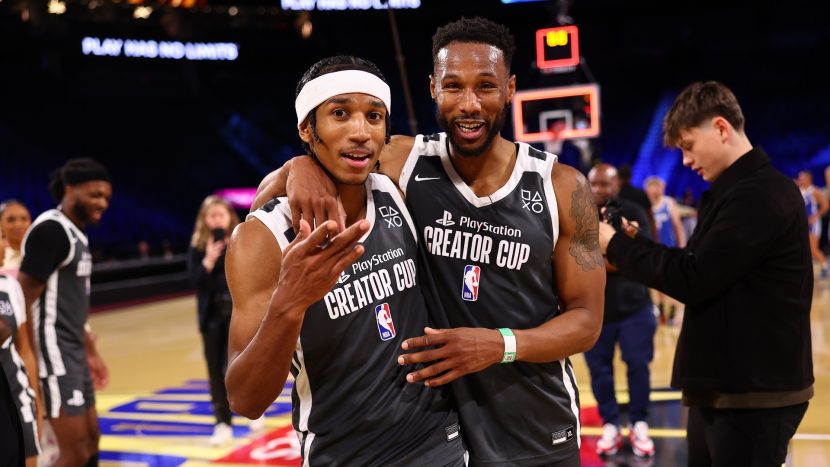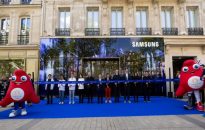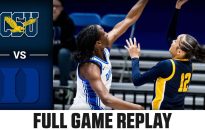USATSI You might have noticed the first batch of NBA trades for the 2024-25 season has come in the past few days. Thomas Bryant is headed to the Indiana Pacers, and Dennis Schroder will be a Golden State State Warrior. Why? Well, the rules don’t exactly facilitate trades in October and November. The unofficial start […]


You might have noticed the first batch of NBA trades for the 2024-25 season has come in the past few days. Thomas Bryant is headed to the Indiana Pacers, and Dennis Schroder will be a Golden State State Warrior. Why? Well, the rules don’t exactly facilitate trades in October and November. The unofficial start of trade season came Sunday (Dec. 15), when the bulk of free agents signed in the previous offseason became eligible for trades.
Why is the availability of those free agents so important? Nobody has cap space in the season, and very few teams have roster spots. Fewer teams than ever have access to trade exceptions because of rule changes introduced in the 2023 CBA. There are strict rules about matching salary in NBA trades, and while those rules are easy to navigate during the offseason, doing so with all of the limitations of the season is difficult. It’s possible starting on Dec. 15, and gets easier in January, when teams have their entire rosters to work with in trade talks.
The overwhelming majority of those free agents become eligible for trades on Dec. 15. A small group, those who re-signed with their original team that was at or over the cap at the time of signing on either full Bird or Early Bird Rights to a contract that included at least a 20% raise, must wait until Jan. 15 to be trade eligible. That group tends to be small enough, though, that Dec. 15 is treated as the unofficial starting gun for trade season. It is when the overwhelming majority of players league-wide become eligible to get moved.
So, now that Dec. 15 has arrived, let’s take a look at who’s available and who within this group could get traded. Below are all 86 players eligible for a trade as of Dec. 15, with a shoutout to Hoops Rumors for assembling the complete list.
Who’s available and who could move?
Eighty-six players who signed deals this summer became trade eligible on Sunday. Shoutout to Hoops Rumors for assembling the complete list. The list includes notable veterans like Russell Westbrook, James Harden, Klay Thompson and even LeBron James. It also includes Bryant and Melton, who were dealt over the weekend.
The first name to watch on this list is Jonas Valanciunas. The Wizards big man has been cited as a likely trade candidate in multiple reports, and with No. 2 overall pick Alex Sarr the obvious priority at center, there isn’t much of a reason for a 3-21 team to keep a 32-year-old big man. The Lakers are the obvious team to watch here. LeBron James was reportedly willing to take a slight discount to open up the mid-level exception for Valanciunas, but he signed in Washington while the Lakers were chasing Klay Thompson. Now Los Angeles badly needs another big man and has plenty of mid-sized salaries to trade.
The second-most notable name on this list would have been coming from a buyer, not a seller. De’Anthony Melton was on a one-year, $12.8 million contract with the Golden State Warriors, but will miss the rest of the season due to an ACL injury. That made him an obvious bit of salary-matching fodder in their search for upgrades, and sure enough, they used him to land Schroder from the Nets. Something to keep in mind for Melton and Schroder, though, is that both can be traded again before the deadline. Neither is subject to the typical 60-day salary aggregation restriction that comes with trades because they weren’t aggregated themselves in the deal. Basically, this means that Golden State can turn around and include Schroder in a package for one of the stars they’ve been hunting if they want to, and the Nets, who are expected to be active sellers, could use Melton’s salary for something if needed.
A number of other players on the list could turn out to be salary fillers, but it will depend on what is available, how their teams’ seasons progress and a variety of other factors. The following players all play for competitive teams, are not essential to their success and all have contracts big enough to matter in salary matching but not big enough to be cumbersome to an acquiring team: Dario Saric (Nuggets), Nic Batum (Clippers), Luke Kennard (Grizzlies), Gary Harris (Magic), Andre Drummond (76ers), Caleb Martin (76ers), Kelly Oubre (76ers) and Royce O’Neale (Suns). The odds of any of these players individually being traded are below 50%. But any one of them could be an important piece of a bigger deal, depending on how the deadline shakes out.
Finally, we should at least address the superstars on this list. In most cases, they are pretty safe. Harden is playing too well to get traded. There probably wouldn’t be too much interest in Paul George or DeMar DeRozan on their current contracts, given the way their seasons have started, and even if there were, it’s doubtful that either of their teams are ready to throw in the towel. Chris Paul and Westbrook are earning their keep on small deals, so there’s no compelling reason for their teams to trade them unless something unexpected happens.
That leaves James as the last name of note here. Is he going to get traded? He almost certainly won’t be. But the Lakers are spiraling and the Warriors at least asked about him last February. He wasn’t interested then. Perhaps his mind will change by this year’s deadline, or another suitor proves more convincing. Don’t count on a James blockbuster, but it’s not out of the realm of possibility, and for now, it is at least legal.
Who’s coming on Jan. 15? Could any of them get traded?
The January 15 list isn’t as long, but it’s arguably more important. Most of these players are either real contributors or were signed to serve as salary fodder in a trade. There are 17 players in all:
- Nic Claxton, Nets
- Miles Bridges, Hornets
- Patrick Williams, Bulls
- Obi Toppin, Pacers
- Max Christie, Lakers
- Haywood Highsmith, Heat
- Precious Achiuwa, Knicks
- OG Anunoby, Knicks
- Isaiah Joe, Thunder
- Aaron Wiggins, Thunder
- Goga Bitadze, Magic
- KJ Martin, 76ers
- Tyrese Maxey, 76ers
- Josh Okogie, Suns
- Malik Monk, Kings
- Immanuel Quickley, Raptors
- Johnny Juzang, Jazz
The first name to watch in this group is KJ Martin. As I covered at the time, the 76ers signed him primarily to serve as spare salary to use in a trade. He has a team option for next season, so Philly could theoretically kick the can down the road if there isn’t a sensible trade on the board, but when a player is signed primarily to be traded, the day he becomes eligible for a trade is pretty notable.
Precious Achiuwa wasn’t as egregious an example of the “sign to trade” phenomenon as Martin, but when New York re-upped him in the offseason, they did so while actively trying to trade for other centers. They ultimately landed Karl-Anthony Towns, and while Achiuwa is playing now, it’s not clear what sort of role he’ll have when Mitchell Robinson returns. If the Knicks decide to try to patch up another hole elsewhere, Achiuwa’s $6 million salary will likely be involved.
Max Christie is the last name to watch here. When the Lakers signed him to a four-year, $32 million deal over the summer, they did so expecting him to blossom into a rotation player. He’s not shooting well enough to justify minutes so far this season, and his defense has underwhelmed as well. While the Lakers would likely prefer to hold onto him as a long-term developmental project, he hasn’t played himself out of “tradable salary” territory if they decide to make a big move.














